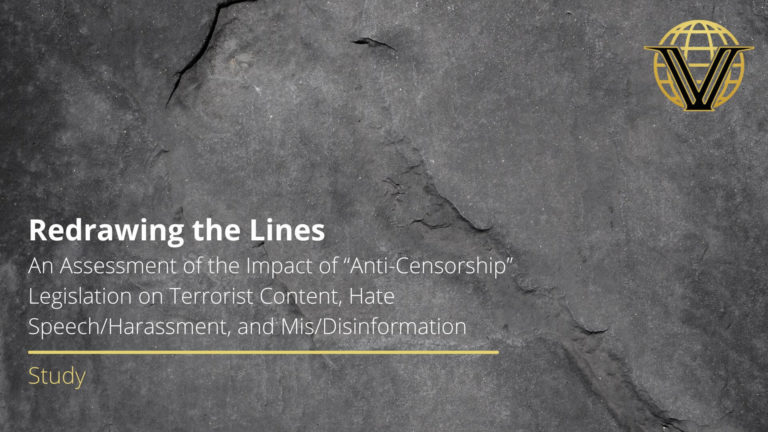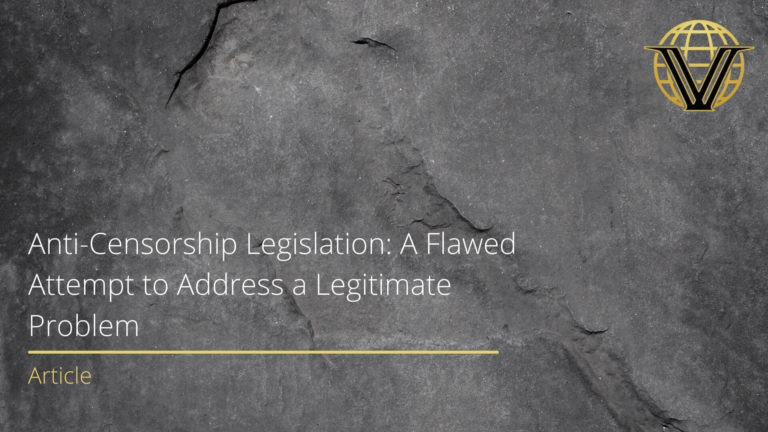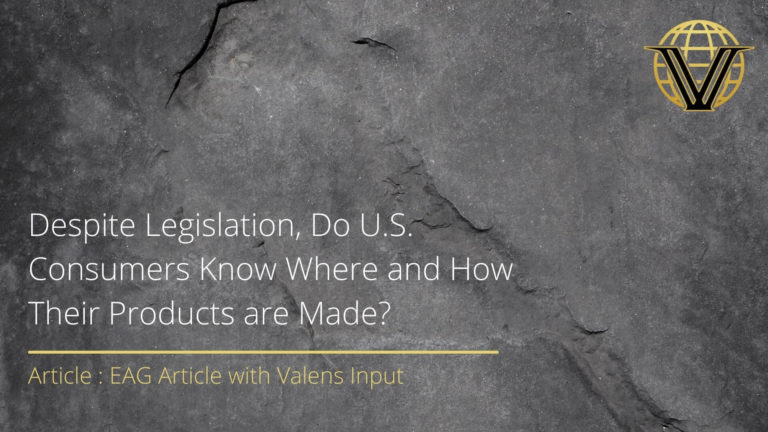Daveed Gartenstein-Ross and Nathaniel Barr
Although little-noticed at the time, Ahwaa’s seemingly innocuous project was in fact revolutionary. Homosexuality in the MENA region is not only stigmatized but generally criminalized and banished from the public sphere. The creation of an online platform where LGBT people could candidly discuss the issues affecting their lives, such as romantic relationships or the tensions between Islam and gay rights, was thus a direct challenge to deeply inscribed cultural and religious norms. Indeed, Ahwaa heralds a wave of challenging ideas that, fueled by rapidly rising Internet penetration, will soon inundate Muslim-majority countries.
Online communications, by their nature, give marginalized social and political groups a space to organize, mobilize, and ultimately challenge the status quo. In the MENA region, online spaces like Awhaa will give sexual minorities the ability to assert their identity, rights, and place in society. So too will the Internet amplify discourses critical of the Islamic faith, or of religion in general, and solidify the identities of secularists, atheists, and even apostates. The rise of these religion-critical discourses will in turn trigger a backlash from conservative forces who fear an uprooting of traditional beliefs and identities. The coming social tsunami should be visible to anyone who knows what signs to look for.
THE INTERNET BOOM
The past two decades in the West have seen an extraordinarily rapid revolution in LGBT rights. In 1996, Democratic President Bill Clinton signed into law the Defense of Marriage Act, which defined marriage as the union between one man and one woman. While running for president twelve years later, in 2008, Democratic nominee Barack Obama was still defending this definition, adding, “I’m not somebody who promotes same-sex marriage.” But public opinion on the issue shifted rapidly. By 2011, more people supported gay marriage than opposed it. And by the time Obama left office, not only was same-sex marriage a constitutionally protected right, but it was inconceivable that a viable Democratic candidate would oppose it. Indeed, the transformation has affected both sides of the aisle—current President Donald Trump is doubtless the most pro-LGBT Republican nominee of all time.
The rise in Internet access was central to this revolution. Joe Kapp, an LGBT-identifying entrepreneur, has written about how the revolution in online communications “allowed LGBT people to bridge disparate geographies,” to “safely and discreetly find partners,” and to “learn that they are not alone, regardless of where they live.” The increasing confidence and visibility of LGBT people allowed them to move the needle on gay marriage, first incrementally and then more assertively as public opinion began to shift. As Kapp writes, “One need only look at the sea of red equal signs that appeared on Facebook in support of marriage equality to see the potential impact of sharing ideas across new social media.”
Access to the Internet is now growing rapidly outside the West. In Muslim-majority countries Internet penetration rates, which measure the percentage of a country’s population with Internet access, have long lagged behind those of the developed world—but this state of affairs is changing. In 2010, according to Internet World Stats, Internet penetration rates in sub-Saharan Africa and the Middle East were just 10.9 percent and 29.8 percent, respectively. In North America, by contrast, the rate stood at 77.4 percent. But by 2016 Internet penetration had risen to 28 percent in sub-Saharan Africa and 57 percent in the Middle East. Indeed, some Muslim countries have been at the forefront of the global boom in Internet access—Saudi Arabia’s rate more than doubled from 2007 to 2016, and Tunisia’s rate over the same period went from 13 percent to just under 50 percent.
This boom is occurring in some of the most conservative societies on Earth, where ideas contrary to or critical of a strict interpretation of Islam are often stigmatized or even punished. With regard to sexuality, for instance, most Muslim societies consider discussions of homosexuality and LGBT rights to be off-limits. Indeed, most institutionalize anti-LGBT discrimination through their legal systems. Homosexual acts are illegal in all Muslim-majority MENA countries, with the exception of Jordan and Bahrain. Several states deem homosexuality an offense punishable by death. In addition to state violence, LGBT-identifying individuals can also be threatened by vigilantes. In 2014, for example, a Pakistani man killed three gay men he had met online, explaining that he had done so to send a message about the “evils” of homosexuality.
Throughout the region, conservative religious authorities have played a critical role in shaping public attitudes and establishing social norms around homosexuality. In 2007, for example, a member of the Algerian Ministry of Religious Affairs described
It is thus little wonder that people critical of religion, such as apostates, atheists, and blasphemers, are similarly stigmatized. A 2016 Pew Research Center report found that 18 of the 20 countries in the MENA region have criminalized blasphemy, while 14 have banned apostasy. So powerful is the stigma against apostasy that when Egypt’s Dar al-Ifta, an official religious institution, announced that there were 866 atheists in the country—a remarkably precise and also laughably low figure—the institution’s clerics warned that the figure should “set alarm bells ringing.”
Even in countries with relatively lenient legal regimes, such as Lebanon, discourse critical of religion is limited. Vigilante violence can imperil atheists, and sometimes even those who defend religious freedom. Salman Taseer, the former governor of Pakistan’s Punjab province, was a courageous and vociferous critic of his country’s blasphemy law, describing it at one point as “a law which gives an excuse to extremists and reactionaries to target weak people and minorities.” For his stance on the issue, Taseer was gunned down in January 2011 by his own bodyguard, Mumtaz Qadri, a committed Islamist.
Public rage followed Taseer’s assassination, but a significant portion of it was directed at the murdered governor rather than his killer. The Pakistani religious organization Jamaat Ahle Sunnat—which is regarded as mainstream and non-extremist—issued a statement warning that “there should be no expression of grief or sympathy on the death of the governor, as those who support blasphemy of the prophet are themselves indulging in blasphemy.” When Qadri went to trial, lawyers showered him with rose petals as he walked into the courthouse. Qadri was hailed as a hero by tens of thousands of demonstrators after the state executed him, and today a shrine has been erected at his gravesite in Islamabad.
In such a hostile environment, both critics of religion and members of the LGBT community are often forced to remain in the shadows. For reasons of legality and personal safety, being too loud can be a bad idea. The growth in Internet penetration will change this dynamic.For reasons of legality and personal safety, being too loud can be a bad idea. The growth in Internet penetration will change this dynamic.
COMING OUT
Publicly disclosing one’s LGBT has long been known as “coming out,” a phrase that deliberately invokes a debutante’s coming-out party, in which an upper-class young woman is formally introduced into adult society. Reviewing the relevant social-science literature, a recent article in the Journal of Child and Family Studies noted that coming out “has been described as an essential component in [LGBT] identity formation and integration,” and carries a variety of mental health benefits related to improved self-esteem and reduced anxiety. Conversely, coming out can result in exposure to discrimination and rejection by friends and family.
In terms of the social stigma it invites, leaving the Islamic faith can also be seen as a kind of coming out, albeit one generally devoid of the celebration that often accompanies outwardly accepting one’s LGBT identity. In his book The Apostates, a study of Muslims who leave their religion, British criminologist Simon Cottee recounts the story of a young Sudanese woman who explained that for the individual apostate, leaving Islam is “such an intense journey.” To “everyone else,” however, “it’s just another story, people don’t really care.” (Cottee noted that by “everyone else,” she was referring to non-religious friends of hers; to her family, “it isn’t just another story. It is a calamity.”)
Yet for both marginalized groups, the Internet boom will accelerate the process of coming out. Whereas offline space is hostile, online space offers a relatively safe environment where people can assemble, interact, and build relationships. Shielded by the relative anonymity of online communications, marginalized individuals of all stripes can discuss intimate and controversial issues. The Internet, furthermore, allows like-minded people from disparate corners of the world to find one another and create virtual communities. An atheist living in rural Egypt, for example, may not know anyone else who shares his views. But when he goes online, he will find millions of people who do.
To appreciate the impact that increased Internet penetration will have on religiously conservative societies, it is crucial to understand how online interaction changes the behavior of members of marginalized communities. One important theory, that of “identity demarginalization,” is particularly instructive. The psychologists Katelyn McKenna and John Bargh, in their 1998 study “Coming Out in the Age of the Internet,” coined the term identity demarginalization to explain how people with marginalized and concealable identities (in other words, stigmatized identities that cannot be discerned just by looking at someone) interact with one another online. They found that people with marginalized sexual and political views highly valued the opinions of peers in their online social networks. The online community, for them, became a critical source of emotional support, where people could “for the first time… reap the benefits of joining a group of similar others.”
Members of marginalized groups come to more fully embrace their marginalized identities as they engage online with other like-minded people. As one 2008 study on online pro-anorexic groups noted, online forums are “an ideal space for maintaining and validating” a marginalized identity. Perhaps most importantly, McKenna and Bargh concluded that once their identities were demarginalized, people began to consider revealing their identity publicly.
MOVING OFFLINE
Marginalized communities in the MENA region have not yet mastered the online environment, but they recognize the promise of digital engagement. As Ahwaa’s founder explained, the Internet has functioned as a “gateway to freedom of speech, particularly around taboo topics that face widespread censorship.” LGBT activists in North Africa, for instance, have established niche online magazines. Online dating in particular has flourished. Amir Ashour, an Iraqi activist, recalled that when he set out to establish Iraq’s first LGBT organization, he gauged interest by using social media, reaching out to personal contacts, and contacting people through Grindr and Tinder, two dating apps.
MENA-based atheists have similarly begun carving out a foothold on social media. Several atheist groups on Facebook have amassed over 20,000 members. These groups have been targeted by conservatives, who have launched coordinated online harassment campaigns designed to get Facebook to suspend atheist accounts. One tactic has involved posting pornographic images to atheist pages, then immediately reporting the images to Facebook. Some Islamists have also reported atheists for allegedly Islamophobic hate speech. These tactics have yielded temporary results: In February 2016, Facebook suspended at least nine atheist groups with a combined following of over 128,000 members, although the social media company quickly restored the pages.
Despite these efforts to silence the online atheist community, the Internet remains a refuge. An atheist from Saudi Arabia, which has criminalized “calling for atheist thought in any form,” explained in an interview that Saudi atheists use Facebook and Twitter both to engage in discussions about secularism and religion and to set up in-person underground meetings. The man, who went by a pseudonym, noted that he had met atheists in their forties and fifties, who had only recently revealed their views after interacting with younger atheists online.
Some atheist activists have even begun to operate online under their real names, eschewing the pseudonyms that many still use for protection. In 2013, Egyptian atheists created the Black Ducks YouTube channel, which profiles atheists and other non-religious people from the Arab world. Individuals involved with the channel have made a conscious decision not to mask their identities. As one activist explained, “If we atheists stop being ghosts and materialize, we will be taken more seriously… We’ll never get what we want if we don’t have the courage to claim it with our real names and faces.”
Online discourse within the LGBT community has also evolved and grown bolder, as can be seen in the case of the Ahwaa forum. Members use Ahwaa as a sounding board to discuss a range of sensitive subjects that are rarely broached in public. One individual who self-identified as a lesbian, for example, asked forum members whether homosexuality was forbidden (haram) in Islam, and explained that she felt “so bad just thinking that God didn’t even talk about who we are in the Quran.” In another thread, a poster explained that he had lost all his friends when he came out to them. The post prompted a wave of sympathetic responses, as forum members comforted the man and offered to befriend him online. Such interactions build social cohesion within the LGBT community and help to strip away stigmas.
But perhaps the most telling thread on Ahwaa relates to a more visible type of identity demarginalization: coming out. In a long discussion ranging over dozens of posts, forum members debated the merits of revealing their sexual orientation to coworkers, friends, and family. Several posters shared their divergent experiences of coming out. One woman warned that she had experienced hardship when she came out to her religiously conservative family, while another woman explained that when she told her mother she was pansexual, her mother initially expressed doubts but ultimately said, “I just want you to be happy.” In a separate thread, a girl explained that she lived with “constant fear and guilt” because she kept her sexual identity hidden from her family. Several forum members addressed her concerns. One told her, “do not feel guilty at all. This is who you are, and if you[r] parents cannot understand and would not understand, then you will just have to keep it to yourself. There’s no shame in being different.” Few comments better exemplify the role that online communities can play in destigmatizing marginalized identities.
CLASHING IDENTITIES
As LGBT and religion-critical communities in Muslim countries become increasingly assertive, they are likely to trigger a backlash from conservative religious forces. Indeed, the backlash has already begun, sometimes violently, at both the state and the sub-state level.
Even as Islamist groups have launched reporting campaigns to shut down atheist Facebook accounts, governments have arrested atheists who are vocal online. In 2015, Egyptian courts sentenced a 21-year-old student to three years in prison after he declared on Facebook that he was an atheist. Saudi Arabia has imprisoned blogger Raif Badawi since 2012 on charges of insulting Islam online, occasionally dragging him out of jail for a public lashing. And across the MENA region, governments have similarly targeted members of the LGBT community who are active online. On dating apps, Egyptian police have used catfishing—a tactic in which individuals use false personas to establish online relationships—to identify and arrest gay men.
In the most extreme cases, members of these marginalized groups have been the victims of targeted sub-state violence. Since 2013, Islamist militants in Bangladesh, some of whom are linked to al-Qaeda in the Indian Subcontinent, have carried out a series of assassinations targeting atheist bloggers. And in April 2016, a jihadist faction pledging allegiance to the Islamic State claimed responsibility for killing the editor of Bangladesh’s only LGBT magazine.
WHAT’S NEXT
It is not entirely clear how the Internet-enabled rise of marginalized communities—such as the LGBT or religion-critical ones—will reshape Muslim-majority societies. In the short term, the rise of these social movements may provide a boon to jihadist groups, who often cast themselves as the only force capable of protecting the faith against Western and secular values. But over the long term, these marginalized groups may fundamentally challenge religious conservatives’ grip on power.
This could produce sweeping social and policy changes—similar, perhaps, to what we have witnessed with respect to the issue of gay marriage in the United States. But it could also generate massive social instability, akin to the tumult of the Arab Uprisings, and the attendant failure to put countries like Libya back together.
Regardless of their ultimate outcome, however, signs of the coming Islamic culture wars can already be discerned. Western observers have long overlooked or misinterpreted social trends that have swept through Muslim-majority countries. This is one trend that they cannot afford to miss.



